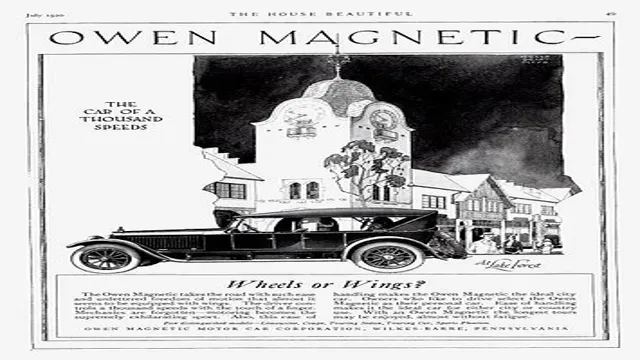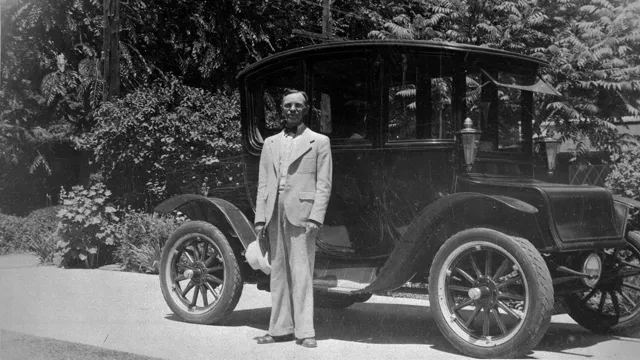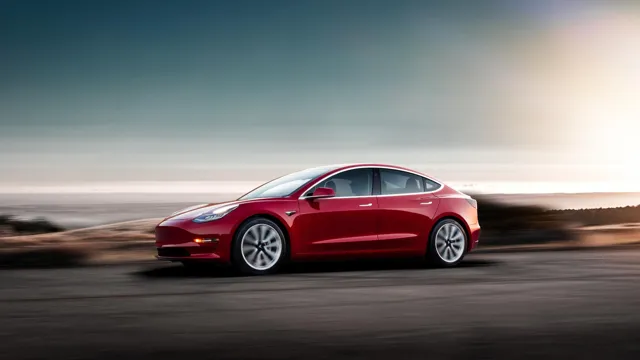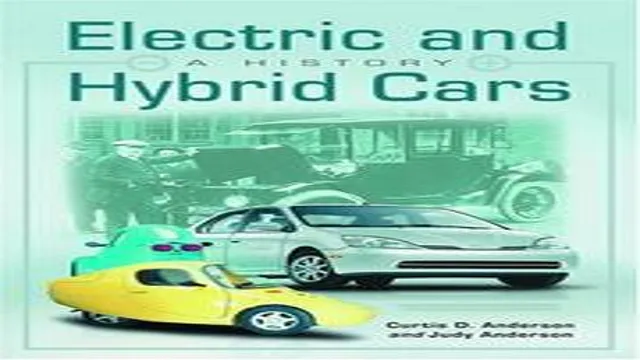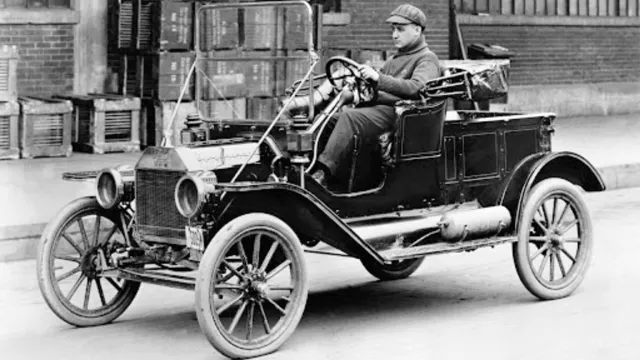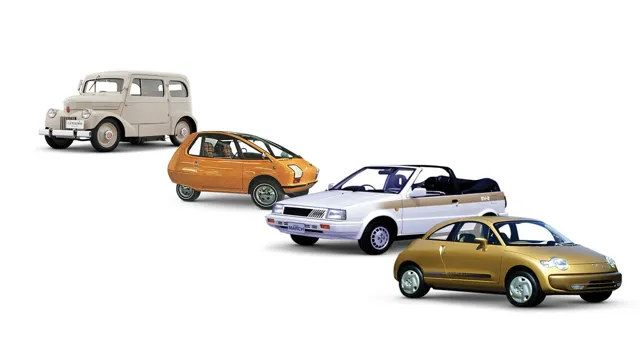Revving Up the Past: Unveiling the Fascinating History of the Electric Car
Electric cars have been long been considered as a futuristic concept, something we’ve seen in movies or read in sci-fi novels. However, with the increasing demand for environmentally-friendly modes of transportation and the advancement of technology, electric vehicles are no longer a far-off idea. They are fast becoming mainstream and are quickly gaining popularity as an efficient and sustainable option for those who care about the environment.
The rise of electric cars has been evident over the past few years, with many automakers shifting their gears towards electrification. From Tesla’s sleek and high-performance EVs to Volkswagen’s ID.4 and Nissan’s Leaf, electric cars are now available in a range of models and are gaining more recognition as an alternative mode of transportation.
Not to mention, the introduction of the government’s grant scheme in many countries has made EVs more accessible for the average buyer. With a push towards reducing the planet’s carbon footprint and global warming, electric cars have come to the forefront as a solution to reducing greenhouse gas emissions from transport. These cars run on batteries, which means there is no need for fossil fuels, making them the eco-friendliest mode of transportation available.
Besides, with advanced battery technology, today’s electric cars have an impressive range, making road trips possible without any range anxiety. In conclusion, the rise of electric cars is not just a trend but the beginning of a revolution in the automobile industry. They are becoming more affordable, available, and efficient with time, promoting a cleaner, sustainable environment.
With the push towards electrification increasing day by day, it’s only a matter of time before electric cars become the default choice for many car buyers worldwide.
Early Beginnings
The history of the electric car dates back to the early beginnings of the automobile itself. In the 1830s, inventors began experimenting with the concept of electric propulsion, and by the end of the century, electric vehicles had become a viable alternative to gasoline-powered cars. However, the development of the internal combustion engine and the discovery of cheap oil led to the decline of electric cars in the early 20th century.
It wasn’t until the 1990s that the electric car re-emerged as a viable alternative for consumers. The technology has come a long way since those early experiments, and today’s electric vehicles offer reliable, efficient transportation without the need for fossil fuels. As we continue to look for ways to reduce our dependence on oil and reduce greenhouse gas emissions, the electric car continues to play an important role in shaping the future of transportation.
The First Electric Vehicle
Electric Vehicle The history of electric vehicles dates back over 100 years ago when Thomas Parker produced the first electric car in 188 The vehicle contained a rechargeable battery, which powered an electric motor. This invention is considered the birth of the electric vehicle, making Parker the father of the electric car.
Parker understood the environmental benefit of electric vehicles before its time. His invention of the electric car paved the way for the future of the automobile industry. Although electric vehicles struggled to gain traction in the early 20th century, their popularity has surged in recent years due to advances in technology and increased environmental awareness.
The world has come a long way since the first electric vehicle, and with the environmental concerns of today, we look forward to the future of sustainable transportation with electric vehicles at the forefront.
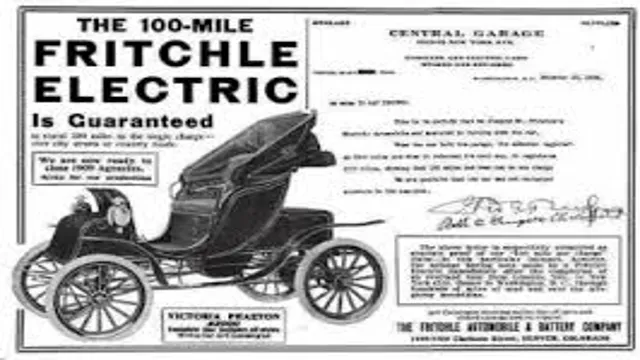
Challenges and Failures
As with any startup, early failures and challenges are to be expected. For me, this came in the form of limited funding. I had to be extremely resourceful with every penny I had.
I was constantly searching for ways to cut costs or find alternative solutions that were just as effective but more affordable. This was sometimes frustrating and even discouraging, but it allowed me to develop a strong sense of resilience and determination that helped me overcome future obstacles. Looking back, I can see that these early hurdles were actually blessings in disguise, as they forced me to be both creative and efficient with my resources.
In the end, it was these qualities that helped me build a successful business that has stood the test of time. So although the early days were tough, I wouldn’t have wanted them to be any different. They were the perfect foundation upon which to build my business.
Revival of Interest
The history of the electric car essay is not only fascinating because it delves into a vehicle’s journey but also because it offers a unique perspective on the mindset of people at different times. The electric car was around even before the gasoline-powered vehicle, but it was neglected for decades until recent years. People have started to understand the importance of cleaner and environmentally friendly transportation, which is why electric cars are now making a comeback.
The Tesla Roadster, for example, has an estimated range of 620 miles per single charge and a top speed of 250 mph. With its insane power and green credentials, it’s not hard to see why electric cars are becoming popular. The history of the electric car essay offers an excellent glimpse into an important chapter of automotive history and sheds light on how technology, policies, and attitudes have changed over time.
Environmental Concerns
Environmental concerns have made a massive comeback in recent years, and for good reason. As we become more aware of the impact our actions have on the planet, people are beginning to take action. From recycling to reducing our carbon footprint, everyone is contributing in their own way.
The revival of interest in environmental concerns has led to some exciting developments. New technologies are being developed that are more eco-friendly, and governments are introducing policies that promote sustainability. Companies are also realizing the importance of being environmentally conscious, and many are making changes to their packaging and supply chain.
It’s heartening to see so many people and organizations coming together to make a positive impact on our planet. With time, we can only hope that these efforts will lead to a healthier and more sustainable future for generations to come.
Improvements in Technology
The improvement in technology has brought about a revival of interest in many areas of society. With advancements in artificial intelligence, virtual reality, and the internet of things, people are excited about what the future holds. It seems like every day there is a new breakthrough or development that captures the public’s attention.
This renewed fascination is not limited to technological fields, but extends to areas such as entertainment, gaming and even healthcare. One reason for this surge in interest is the sheer number of possibilities that technology offers. It has opened up new avenues for creativity and innovation, allowing people to explore new ideas and possibilities in ways that were never before possible.
The potential for new discoveries and solutions to old problems is incredible, and people are eager to be a part of this new frontier. Overall, the improvements in technology have ushered in an exciting and optimistic era, one where anything seems possible.
Government Incentives
In recent times, there has been a significant revival of interest in government incentives from businesses seeking support in navigating the challenges presented by the pandemic. Most firms have seen a significant downturn in productivity in the past year, resulting in profit loss and employee layoffs. Thus, to help catalyze productivity, governmental bodies have stepped in to offer a range of incentives such as tax reductions, grants, and loans to qualifying businesses.
These incentives are necessary as they stimulate the economy, thus fostering growth and development while also avoiding permanent job losses. The impacts of these programs extend beyond the firms that benefit directly from them; they also promote community growth and social welfare, enabling businesses to recover and thrive. Overall, the government’s incentives are a crucial lifeline for firms across sectors that are struggling to remain operational in the current economic climate, and they can serve as a pathway to success for entrepreneurs who would otherwise struggle to make ends meet.
Modern Electric Cars
The history of the electric car essay is a fascinating research topic that explores the evolution of electric vehicles from their inception to modern-day electric cars. The idea of electric cars dates back to the early 1830s when Scottish inventor Robert Anderson invented the first crude electric carriage. However, it wasn’t until the late 19th and early 20th centuries that electric cars became a practical alternative to gas-powered cars with the introduction of better batteries, improved electric motors, and charging infrastructure.
In the mid-1990s, automakers like Toyota and General Motors experimented with modern electric cars, and the first mass-produced electric car, the Nissan Leaf, was launched in 20 Today, with advances in batteries, electric cars are becoming more popular and efficient, offering a sustainable and eco-friendly alternative to gas-powered vehicles.
Tesla’s Impact
Modern Electric Cars Tesla has revolutionized the automobile industry by providing cutting-edge electric cars that rely on rechargeable batteries instead of traditional fossil fuels. The company has sparked a newfound interest in eco-friendly transportation, with many other automobile manufacturers following in Tesla’s footsteps. Modern electric cars are incredibly efficient and cost-effective, as they require less frequent maintenance and have lower operating costs than their gas-powered counterparts.
Tesla’s impact on the automobile industry has turned the industry on its head, demonstrating how innovative technology can be leveraged to make significant environmental strides. The Tesla Model S, for instance, set a new precedent for electric cars by offering a sleek, athletic design with outstanding performance capabilities. With Tesla’s advancements, we are witnessing a more sustainable, safer transportation future, and it’s all thanks to modern electric cars.
Other Major Players
When it comes to modern electric cars, there are a number of other major players in the market aside from Tesla. One such contender is the Chevrolet Bolt, which boasts an impressive range of up to 259 miles on a single charge. There’s also the Nissan Leaf, which has been around since 2010 and has since undergone major improvements in terms of battery range and overall design.
The Hyundai Kona Electric is another noteworthy option, with a range of up to 258 miles and a stylish exterior. And let’s not forget about the popular Tesla Model 3’s counterpart, the Polestar 2, which has received high praise for its sleek design and impressive technology features. With so many options to choose from, it’s clear that the electric car market is evolving rapidly, and users have more choices than ever before.
However, it’s important to remember that choosing an electric car requires careful consideration of factors like driving habits and budget, as well as a willingness to embrace the change to a more sustainable future.
Future of Electric Cars
“The history of the electric car essay” brings to light the long-standing debate on the effectiveness of electric vehicles as a replacement for traditional gasoline-powered cars. The idea of electric cars emerged in the 19th century, but it wasn’t until the late 20th century that they started gaining traction. Despite their various advantages such as being eco-friendly and cost-efficient, electric cars struggled to fully take off due to factors such as limited driving range and higher upfront costs.
However, with advancements in technology, the future of electric cars looks promising. With companies investing heavily in electric vehicle development and governments offering incentives for electric vehicle owners, it’s possible that we could see a future where electric cars dominate the roads. While there is still work to be done, the history of the electric car essay shows that electric cars have come a long way and could be the key to a more sustainable future.
Conclusion
In conclusion, the history of the electric car is a fascinating journey through the evolution of transportation technology. From its humble beginnings as a novelty invention to its current status as a serious contender in the automotive industry, the electric car has come a long way. While there have been challenges along the way, such as limited range and charging infrastructure, the electric vehicle is poised to be a key player in reducing carbon emissions and shaping the future of transportation.
So, if you’re looking for a ride that’s both environmentally friendly and sleek, the electric car is definitely worth considering. After all, why settle for a gas-guzzling dinosaur when you can cruise around in a high-tech, emissions-free roadster?”
FAQs
What is the history of electric cars?
Electric cars have been around since the early 1800s when Robert Anderson created the first electric vehicle.
How have electric cars evolved over time?
Over the years, electric cars have evolved from simple designs with limited range and speed to more advanced models with longer range and faster speeds.
What are the benefits of owning an electric car?
The benefits of owning an electric car include reduced emissions, lower fuel costs, and a quieter, smoother driving experience.
What are the challenges facing the widespread adoption of electric cars?
The challenges facing the widespread adoption of electric cars include limited charging infrastructure, higher upfront costs, and concerns over range anxiety.
